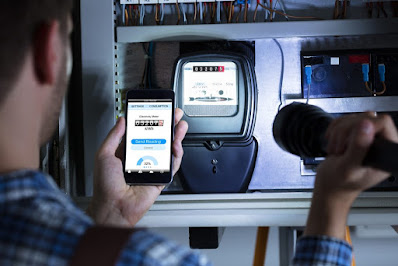IMPROVE INDOOR AIR QUALITY: TIPS FOR HEALTHIER COMMERCIAL ENVIRONMENTS
Sometimes, when there are other aspects of a business to worry about, the quality of indoor air goes unnoticed. However, indoor air quality should never be on the bottom of the priority list. Especially as one of the most important factors to consider for everyone’s overall health and well-being. Many people spend at least 90% of their time indoors, according to the EPA (United States Environmental Protection Agency).That being said, it is critical to take steps to maintain and improve the indoor air quality in your commercial space. Not only will good air quality positively affect everyone who comes through your building, but it will also improve productivity for those working in your building day in and day out.
The Impact of Indoor Air Quality on Health and Productivity
Indoor air quality can change through filtration systems. HVAC ventilation uses outdoor fans that push air into the building via vents. However, not maintaining the components of an HVAC system, like the filters, fans, and ducts, can result in poor air quality inside the building.
Commercial air quality is vital to improving the health of staff members, as well as the overall work environment. Clean air reduces dust, microbes, allergens, and asthma symptoms. Cleaner air also makes the environment feel more comfortable, eliminating stuffiness or being too warm.
Pollutants such as high carbon dioxide levels, inadequate ventilation, and humidity have an impact on the quality of the air as well. At the same time, factors like mold can cause lasting problems requiring remediation ASAP. At a high level, this is why maintaining good indoor air quality is an essential investment that benefits health and productivity for your business.
Understanding Common Indoor Air Pollutants in Commercial Spaces
Commercial businesses sometimes work with heavy machinery with exhaust outlets that disperse into the air and affect the quality. But it’s not just carbon dioxide that pollutes the air. There are other volatile organic compounds like chemicals, aerosols, and airborne suspended particles of moisture droplets and dust. You may also see the particles when the sun’s rays make their way into your space.
Not to mention, indoor air is likely to be more harmful than outdoor air because of the compact and enclosed nature of the space. When poor air quality is prevalent, people may experience sinus issues, headaches, teary eyes, lethargy, skin irritation, and flu-like symptoms. This concept is often called “sick building syndrome,” and it may affect everyone who works in a particular area or worse – the entire building.
Usually the culprit is a lack of HVAC maintenance over a long period of time, resulting in bad air filtration and poor air quality, thus giving rise to the adverse effects mentioned before. Fortunately, there are many tests to determine the air quality. Some tools can assist in measuring the air quality and picking up on levels of particles and pollutants in the air. There are also monitoring systems that can keep track of the air quality over time.
Proper HVAC Ventilation: Ensuring Fresh Air Circulation
To improve indoor air quality, installing commercial air ventilation systems is crucial. Ensuring your interior space receives sufficient ventilation will help improve the indoor air quality for you and your building occupants. Having regular maintenance performed on the outside fans also contributes to better energy efficiency and cleaner air.
Air Filtration and Purification: Removing Harmful Contaminants
Using old and worn filters won’t help improve the air quality. HEPA (High-Efficiency Particulate Air) filters are usually made in compliance with commercial air quality regulations. Most HEPA filters can last between 10 and 20 years with regular air conditioning and HVAC system maintenance. Routine cleaning and maintenance will also help catch any issues before they become major problems later.
Humidity Control: Balancing Comfort and Air Quality
Humidity control also plays a role in good air quality. Plants, for example, can help improve the humidity in an indoor space – bonus: they can enhance the overall look of your commercial space too! Another aspect that affects the humidity is how quickly spills are cleaned up. Excess moisture leads to a build-up of dampness and, as a result, mold can form. This is concerning because long-term mold exposure can cause significant health risks.
Regular Commercial HVAC Maintenance for Optimal Indoor Air Quality
Regular maintenance of your commercial HVAC system is a great first step to improve indoor air quality for you and your building occupants. Once assessed, professional HVAC techs can help you decide on the best course of action, whether to repair parts of the existing HVAC or upgrade to a new and improved system.
Tri-Tech Energy uses advanced diagnostic devices to help locate the core issues of commercial HVAC systems. We seek to ensure that commercial spaces in NJ enjoy high levels of air quality at affordable prices.
Originally published at: https://www.tritechenergy.com/blog/healthier-commercial-environment-guide/

I have been searching for the best Commercial Ventilation Systems for a long time because it enhances the air quality and comfort. It helps us to focus on our work more effectively. Thank you for this blog. This is really helpful.
ReplyDeleteGreat insights on commercial air conditioning systems! Your explanations are simple yet detailed enough for both professionals and newcomers to understand.
ReplyDeleteAt Sydney Air Conditioning Services, we strive to help business owners install and maintain their commercial air conditioners. Our Comprehensive services Commercial Air Conditioning in Sydney. We can supply and install cover panels or bags to suit most evaporative air conditioners. Our technicians recommend regular maintenance to keep your unit at its peak performance and save money on repair costs.